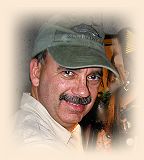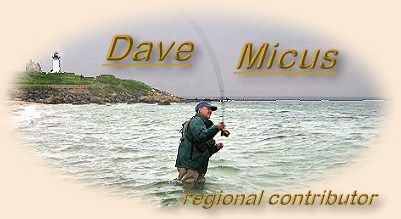|
Though not a certified casting instructor,
I have had the good fortune of teaching an
introduction to fly fishing class over the
past eight years, first at Boston University,
now at the Massachusetts Institute of Technology,
where I am employed. This is a basic class,
free to the students, with the goal of at
least exposing them to the fundamentals of
the sport. My hidden agenda is that maybe,
just maybe, this brief experience will lead
to a life-long passion for at least of few
of them.
The class is always held during the winter,
a time in New England where even lawyers are
seen with their hands in their own pockets.
This precludes any streamside instruction, so
we meet in the gym and pretend that it's Andros.
The class is limited to ten, and, students being
students, a few will disappear along the way
narrowing the amount to six or so, the perfect
number to allow for a fair amount of individual
instruction. Not having cast a rod for two
months, this is a good warm up for me for the
striper fishing that is in the not too distant
future.
I first teach them how not to cast, something
I'm particularly adept at. They take their rods,
strip off thirty feet of line and just wave the
rod any way they want, getting a feel for how
the rod can and can't control the line. After
a bit of this I'll have them attempt at least
a rudimentary overhand cast, but with no emphasis
on loop size so they throw these gigantic open
loops. Unfortunately, some never get beyond this
stage no matter how I prod, but for most it becomes
apparent how much energy is dissipated with these
big looping casts, and we work to tighten the loops
incrementally and soon they are throwing a fair
amount of line and a pretty tight loop. The
mythical 11-1 time/space casting continuum is
easily grasped by the MIT students.
Many of my students have interesting motivations
for learning to fly fish. One was the daughter
of a well-known outdoors writer who wanted to
learn so she could fish with her dad, but,
recalling her adolescent driving lessons,
didn't want him to be the teacher. Another
woman wanted to fly fish because it was her
deceased father's passion and she felt it
was a way she could maintain a connection.
And I once had a student from Montana who
inherited his grandfather's fly-fishing gear,
an old bamboo rod with matching reel, and was
determined to use his inheritance as his
grandfather intended.
As is so often the case when teaching, I learn
as much from them as they learn from me. One
of my students was a mountaineer, and when we
went over fishing knots he showed me how to
judge potential knot failure, a skill he
acquired from necessity. And sometimes
we learned together. An older English
gentleman had a brother who leased a beat
on a renowned salmon river in Scotland, and
he wanted to be able to fish with his sibling.
He was a challenging student in that he came
to the sport with more passion than anyone
else in the class but just could not get the
hang of casting, which proved frustrating for
the both of us. In desperation, I placed a
paper plate 45 ft. from where he was standing
and asked him to hit it. With a target to aim
at he was casting proficiently within ten minutes,
and I've since incorporated this trick into my
teaching methodology.
There are those who take to it like, well,
fish to water. Within a day or two of basic
instruction they are casting as if they have
years of experience, and, buoyed by their
success, they strive to learn more and so
grow into fly fishermen. They stay in touch
long after the program ends, asking questions,
sharing information, and reporting successes
(one caught a 24 inch brown trout the summer
after he took up fly fishing, much bigger than
any trout I've ever caught!), and that always
feels good.
Recently a former student contacted me to ask
if his wife could attend my class. Seems that
he has embraced the sport with such enthusiasm
that he wants to share his zeal with his true
love. Though not a student, so technically
not eligible, I made a spot for her in the
upcoming session. But before you think I'm
a nice guy realize that my motivations are
selfish. If this enhances their relationship
I might market my class as relationship therapy,
and charge $100 for a 45-minute hour, become
the Dr. Phil of fly-fishing. Watch for me
on Oprah... ~ Dave
About Dave:
 Dave Micus lives in Ipswich, Massachusetts. He is an
avid striped bass fly fisherman, writer and instructor.
He writes a fly fishing column for the Port City Planet
newspaper of Newburyport, MA (home of Plum Island and Joppa Flats)
and teaches a fly fishing course at Boston University.
Dave Micus lives in Ipswich, Massachusetts. He is an
avid striped bass fly fisherman, writer and instructor.
He writes a fly fishing column for the Port City Planet
newspaper of Newburyport, MA (home of Plum Island and Joppa Flats)
and teaches a fly fishing course at Boston University.
|



